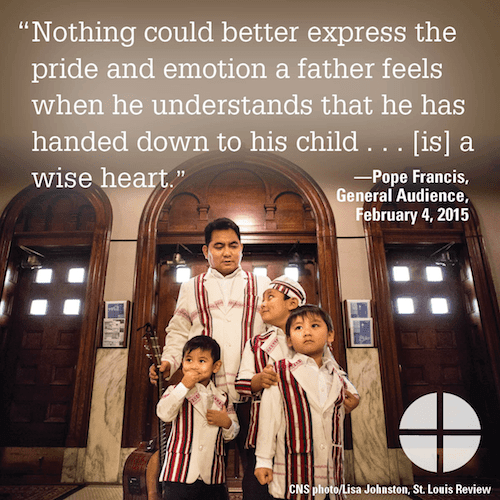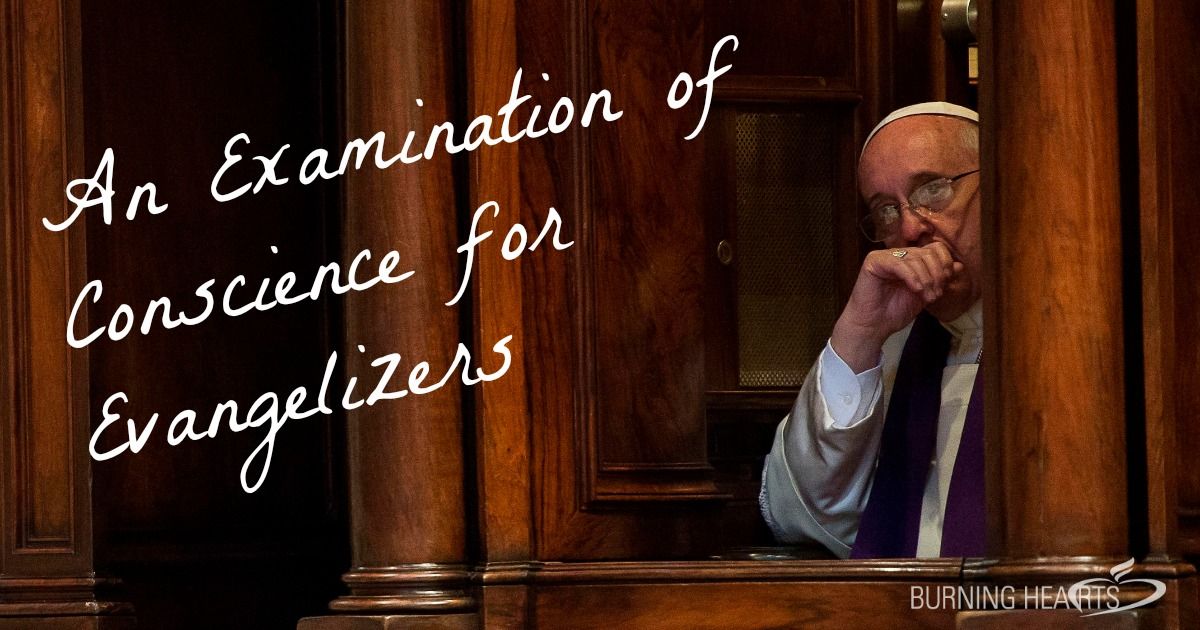The Making Disciples Today Blog has reflections to help you grow in your journey of missionary discipleship, reviews on recommended Catholic evangelization resources, and practical insight on how to evangelize in your daily life.
- Details
- Written by Dr. Gary Popcack
Pope Francis has called Jesus’ Beatitudes our “guide on the path of Christian life.” They reveal something about the ways God the Father relates to us, his children. Seen in this light, the Beatitudes present a unique opportunity for Christian men to become fathers after the Father’s own heart.
That’s why I wrote The BeDADitudes: 8 Ways to Be an Awesome Dad, which looks at how the Beatitudes can shed light on a uniquely Christian vision of masculinity, in general, and fatherhood, in particular. Here’s how the eight Beatitudes can help you be the father God is calling you to be.
- Details
- Written by Fr. Larry Rice
As the weather turns warm with the coming of spring, many people are beginning to make plans for the coming gardening season. Most avid gardeners will tell you that they feel closer to God while working in their gardens than they do anywhere else. Planting, weeding, pruning, weeding, mulching, weeding, harvesting, and weeding are all opportunities to reconnect to God’s ongoing work of creation. Gardens are places to work the soil, but they can also be places to pray and seek a few moments of solitude.
From the earliest centuries of the Christian faith, people have seen in various plants echoes of religious and spiritual themes. Many of these are reflected in gardening folklore and even in the names of the flowers and herbs themselves: Mary’s Bedstraw, Ladder-to-Heaven, Penitent’s Rose, or Crown of Thorns. Like living stained glass, these flower and herbs became symbols of faith. And cultivating them became a means of prayer and contemplation. Today, many gardeners plant whole gardens dedicated to religious and biblical themes.
Among Catholics, “Mary’s Gardens” are popular and are filled with plants whose names and folklore mention the Virgin Mary. In Washington, DC, the Basilica of the National Shrine of the Immaculate Conception has a large Mary’s Garden, given to the Shrine by the National Council of Catholic Women. (Rev. Larry Rice, CSP*)
If you’d like to start a Mary’s Garden at your church or in your own yard, there are lots of resources available on the internet. You can find lists of plants, references for folklore, photos, design suggestions, and information on plants and their symbolism.
For example:
- Details
- Written by Burning Hearts Team
To build a culture of encounter, we must start from within ourselves, from our personal call to discipleship. God knows our true selves, desiring that we, too, discover the person God has called us to be. Through prayer, we encounter ourselves before God; we see ourselves as God sees us. And we realize that God delights in every member of our human family because God is truly present in each of us.

Jesus reminds us, “You shall love your neighbor as yourself” (Mk 12:31). To love another, we must come to know our own selves, our own hurts and triumphs, our own joys and challenges. What begins as an interior encounter necessarily goes beyond ourselves, challenging us to live in solidarity with people we may never meet. How can we hope to go to the margins, to accompany those who are most vulnerable and in need, if we haven’t properly wrestled with our own vulnerability, our own need? Only then can we recognize that each person we encounter can share with us some unique insight about our world, about ourselves, and ultimately, about our God.
- Details
- Written by Kristin Bird
“Every Christian is challenged, here and now, to be actively engaged in evangelization. Every Christian is a missionary to the extent that he or she has encountered the love of God in Christ Jesus: ... we are always ‘missionary disciples’. So what are we waiting for?” (Pope Francis, The Joy of the Gospel, 120)
I am an evangelization fraud
It's true. While I am regularly reading books on the New Evangelization, and am firmly committed to the 'art of accompaniment' as a theory, I’m not very good at it in practice.
Pope Francis has some harsh words for me in Evangelii Gaudium:
“Not to put the word into practice, not to make it reality, is to build on sand, to remain in the realm of pure ideas and to end up in a lifeless and unfruitful self-centredness and Gnosticism.” (EG, 233)
Fortunately, I am not alone. I ran across an excellent article by Dcn. Charles Fernandes of the Diocese of Hamilton where he admits to also being a "faithful—but sometimes overly passive—Catholic."
Our own intransigence, our unwillingness to evangelize, is by far the harshest theme in Evangelii Gaudium, the most difficult for me personally to hear.
In his lengthy personal response to reading and praying through The Joy of The Gospel, Deacon Frenandes pulls out a particularly useful examination of conscience for those of us invovled in the promotion, work, and support of evangelization.




